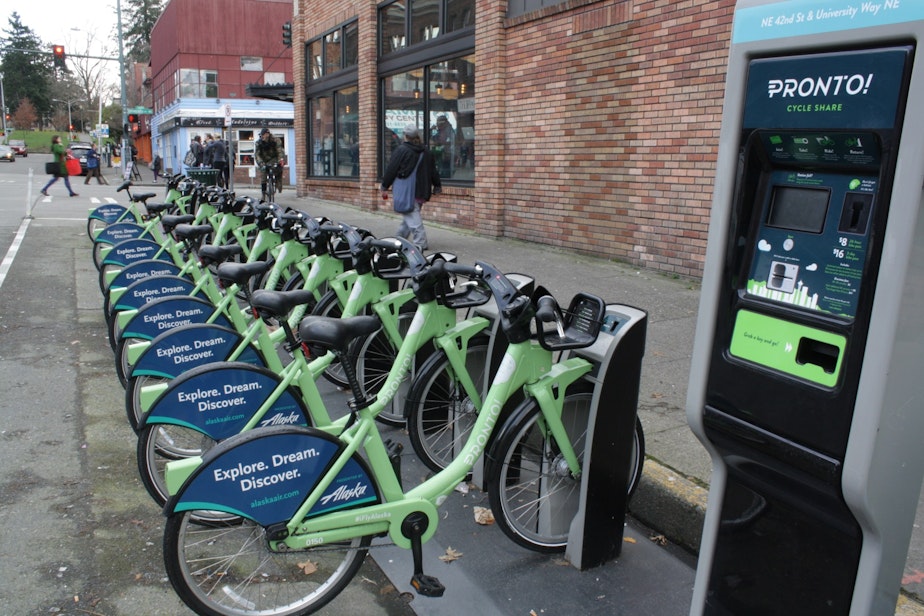Would You Ride These Bikes? That Might Be Seattle's Problem

The City of Seattle may take over the Pronto Bike sharing program. Officials are trying to decide now whether the program is a good thing, or a lemon.
TRANSCRIPT:
First, let’s get this out of the way: The bikes haven't been that popular.
Scott: “I haven’t used them.”
KUOW: “And why not?”
Sponsored
Scott: “I don’t know. I have my own bike I guess.”
Sidhu: “I honestly am a little afraid of biking around the city, to be totally honest.”
Those were college students Isaac Scott and Dahlia Sidhu.
Caroline Deurwarder and Robert Gaynor have actually used the bike sharing service before. But the experience didn’t exactly turn them into super fans.
Deurwarder: “It wasn’t really a smooth ride. So maybe if they had better bikes people would be more willing to ride more.”
Sponsored
Gaynor: “I think it would be more useful if they expanded and there was one closer to where I live.”
Everybody has a theory on why ridership has been low. It could be our weather, or our hills, or maybe we don't have enough bike stations yet. But other cities have mounted successful bike programs despite these obstacles. We also have a stricter bike helmet law than most places.
Seattle City Councilmember Mike O’Brien is among the city officials who’ll be deciding whether the city should purchase Pronto’s assets from its nonprofit manager.
O’Brien: “It’s frustrating that we have a system that’s just barely over a year old and we’re already being forced to ask this question of should we save it or let it die. And so I have some questions about how we got here. What happened in the last year and a half that we didn’t know.”
I put that question to Holly Houser. She’s the former chief executive of Puget Sound Bike Share, the nonprofit behind Pronto. She says Pronto was doing pretty well when the city announced its intention to buy Pronto’s assets in May of 2015. At that point, she says Pronto started shutting down in preparation for the transition, which was supposed to happen on September 1.
Sponsored
But …
Houser: “Things kept getting delayed, things kept getting delayed.”
Pronto had stopped selling station sponsorships in anticipation of the city taking over that role. Houser says that left them unable to pay for all their operating costs.
KUOW: “So it almost sounds like you’re saying the city killed Pronto, and now they're complaining that Pronto is dead.”
Houser: “Yeah. Those are your words, not mine, but I agree with them.”
Sponsored
To be fair to the city, Houser says they always knew it would be hard work building a sustainable system. They just thought the city would support them in the way that other cities have supported their bike sharing programs.
The City Council will begin discussion on Pronto’s future Tuesday afternoon.

